Blog
October 21, 2014
Life in the field: the latest news from the Ruaha Carnivore Project
By Amy Dickman, Director, RCP.
Since its establishment in 2010, the Ruaha Carnivore Project has gone from strength to strength (see previous blog “A Friend Of The Enemy”). Here we share the latest update from the field, complete with tales of competition and camaraderie, knowledge and education, the expanding use of camera-trap technology, and finally, a new addition to the family!
Ruaha Guardians compete in the Lion Guardian Games
A day of camaraderie, competition and celebration was had at the 5th annual Lion Guardian Games, which was held in Kenya’s Selenkay Conservancy, on the slopes of Mount Kilimanjaro. The day is organised by the main Lion Guardians organisation in Kenya, and the Ruaha Guardians travelled up to take part, which was very exciting for everyone involved. Upon arrival, after a long journey, the Ruaha Guardians were treated to a very warm welcome, good food and the opportunity to catch up with old friends.
Day one saw the start of competition. First was a whistling competition, where the warriors produce sounds you would expect to hear in the dawn chorus. This was interesting as the Kenyan Guardians are all from the Maasai tribe, while the Ruaha Guardians are all from the Barabaig tribe, and they use quite different whistling sounds as part of their traditional ceremonies. The songs produced startle you at first not only because of their haunting and beautiful nature, but also because they rival even the most accomplished savannah bird – in fact, when RCP staff first heard the Barabaig whistling in the bush, they were convinced it was a real and rare birdcall! Ruaha Guardian Mandela got second place in this event, getting the Ruaha team off to a good start.
Ruaha Guardian Daream storms home to win the 100m final (c) Sean McEnery
Day two started out with sprinting (a real challenge in the blazing heat!), with mixed Maasai-Barabaig teams. There was a 400m relay followed by a 100m sprint, which was won by Ruaha Guardian Daream, in a photo finish with Kissamir from Kenya. Third was a test of strength and spear-throwing technique, where a strong, straight stick made from the White-leaved Grewia tree is thrown as far as possible. Pascal from Ruaha comfortably won this, literally leaving his closest competitors in the dust. Finally the eagerly awaited spear throwing competition was held to finish off the day. In this event a spear is thrown at a target hanging in a tree. The accuracy of all competitors was astonishing, with many hitting the small, wildly swinging target multiple times. Kiro from Ruaha made it to the final, but narrowly lost to one of the Kenyan Guardians, who proved extremely skilled at hitting the target.
The Maasai sometimes call the Barabaig ‘Mangat’i’, which means ‘enemy’ – but there is no sign of rivalry here, as the Maasai Guardians embrace Daream after his win (c) Sean McEnery
Overall, the competition was a huge success – the Ruaha Guardians won two events, contributed strongly towards a win in the mixed relay, and were finalists in the remaining two events. Most importantly, it was a great chance for the Ruaha Guardians to represent their region and to feel proud of their status within the wider Lion Guardian initiative.
Ruaha Guardian Daudi’s spear about to strike the target (c) Sean McEnery
The spears used by the Maasai warriors in Amboseli (shown above) are much heavier than the light spears used by the Barabaig – shown being tried by one of the Maasai warriors below
The third and final day of the trip involved a training day, where all the Guardians had the opportunity to attend various tutorials where their skills were fine-tuned. George, the Ruaha Lion Guardians Liaison Officer, taught one of the tutorials designed to eliminate problems with filling out data forms. During this tutorial, George again demonstrated his importance to the Lion Guardian team and his talent as a teacher, despite having no formal training in this profession.
Ruaha Guardians Daream, Daudi, Nyota, Kiro, Pascal and Mandela are given some extra training in GPS use (c) Sean McEnery
This was an exciting event, as it brought together all the Guardians from East Africa in one place (c) Sean McEnery
RCP community liaison officer helping improve school attendance
One of the most important aspects of our work is community outreach, and providing benefits to local villagers from large carnivore presence in the area. The villagers all voted on which benefits they would most appreciate, and education was one of the top priorities. Therefore, RCP has provided schoolbooks and equipment to 9 local schools so far, and currently provides full secondary-school scholarships for 11 Simba Scholars. However, there are many challenges in the local school system, and one issue is children leaving school prematurely, often because of family issues. Our Community Liaison Officer, Msago, is a board member for the Idodi Secondary School (where the Simba Scholars are based) so he has been working with the school to try to improve the retention of students. One important aspect is recognising and rewarding those students who are doing well, so Msago was involved in a ceremony at the school to give awards to students who were performing particularly well.
Idodi Secondary school students gathered in the schoolyard
Msago (second from right) lined up beside teachers in a ceremony to reward high-achieving students at Idodi Secondary School
Carnivore sightings work continues and expands
In order to collect data on carnivore ecology around Ruaha, RCP partners with Park guides and drivers and asks them to record photos and data for any large carnivore sightings. This has provided invaluable information, and has led to the development of the first presence maps for lions, leopards and spotted hyenas for the Ruaha landscape, as presented in a recent publication by Leandro Abade. We are continuing to collect data so that we can improve those existing maps and also develop them for cheetahs and African wild dogs, which tend to be more elusive in the central tourist area of the Park. Therefore, we are developing partnerships with lodges further to the north and east of the Park to try to expand the area where information is collected, and are also providing tablet devices to guides so that they can accurately and rapidly collect the data needed. North Carolina Zoo, St Louis Zoo and Cleveland Metroparks Zoo have all been key players in getting the new devices to the field, and we are very grateful for their support.
In addition to its scientific value, the sightings programme provides wonderful images of Ruaha’s carnivores, and helps to remind us all why we do the work we do! Below, we highlight some of the best recent images taken by the drivers we are partnering with.
A beautiful image of a leopard resting on a rock (taken by Dotto of Ruaha River Lodge)
The photos also provide insights into diet and ecology – for instance, this leopard is feeding on a rock hyrax (taken by Vincent of Mwagusi Safari Camp)
Images of lions help us to build up identification data: for example, this lioness is missing her upper left canine, which is useful for future ID (taken by Gadmel of Jongomero Camp)
Cheetahs are seen relatively rarely, and their excellent camouflage is demonstrated here, as one feeds on a kudu kill (taken by Majuto of Ruaha River Lodge)
Two cheetahs quench their thirst at a small waterhole in Ruaha National Park (taken by Theophil from Jongomero Camp)
Proof that you CAN have a cute spotted hyena photo (taken by Maulid of Mdonya Old River Camp)
Camera-trapping set to expand further with new student and AWF partnership
Another extremely important form of data collection for the project is camera-trapping – these remotely-triggered cameras are invaluable for recording wildlife presence in areas where they are particularly elusive and hard to see, such as on village land. RCP has been setting up camera-trap grids in partnership with Jeremy Cusack and Trevor Jones, but the majority of these cameras have so far been placed within the Park. This provides extremely important data on mammal distribution and dynamics (as well as great images!), as shown below by some of Jeremy’s recent photos.
A black-backed jackal looking inquisitively at a pair of waterbuck
A rare sighting of a cheetah, camera-trapped on village land
A giraffe, staring at the behaviour of an approaching elephant
Some local children playing up for the camera-trap as they collect firewood
A new addition to the RCP family!
Things have been particularly busy over the past month for our Director, Amy Dickman, as she gave birth to her first baby on 3rd August. The baby is known as Millie, but her full name is Millicent Kitisi Adames, with the middle name given in honour of the local village where RCP is based. Amy is still as committed to the project as ever, and everything is continuing as normal, so we are all very excited about this development, and are looking forward to Millie seeing the village she was named after!
Both the project and Millie’s arrival attracted publicity in the UK’s ‘Mother and Baby’ magazine, featuring mothers who live unusual lives during pregnancy – as Amy was out in the field until 8 months pregnant, that seemed to qualify! Millie will be accompanying Amy on her fund-raising trip to the US in October, so she is learning about the conservation business early on!
Amy and Millie at 4 weeks old, with her dancing shoes on!
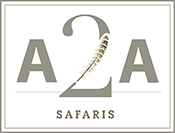
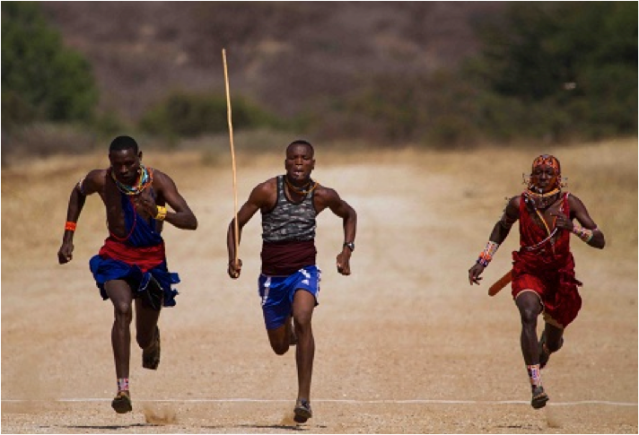
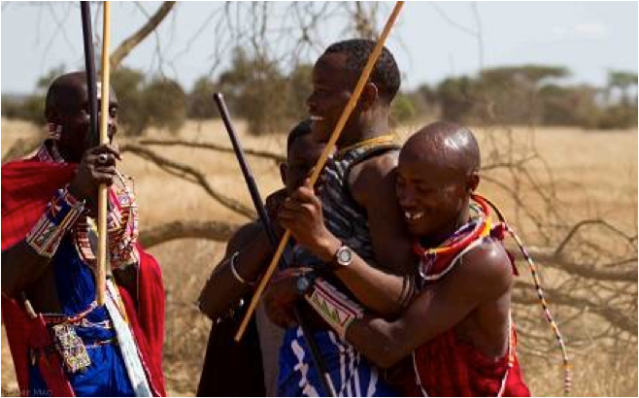
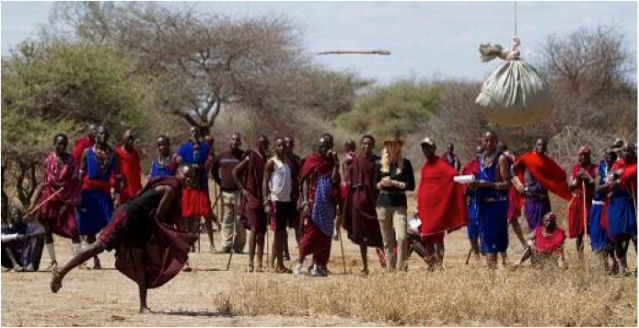
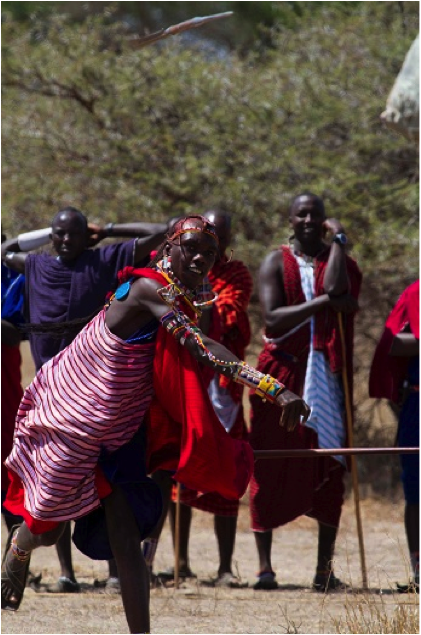
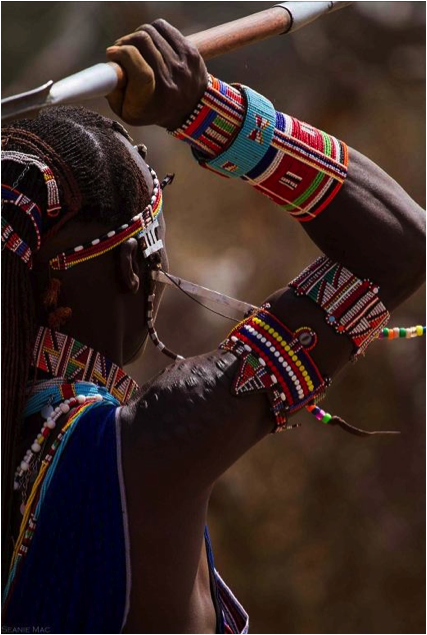
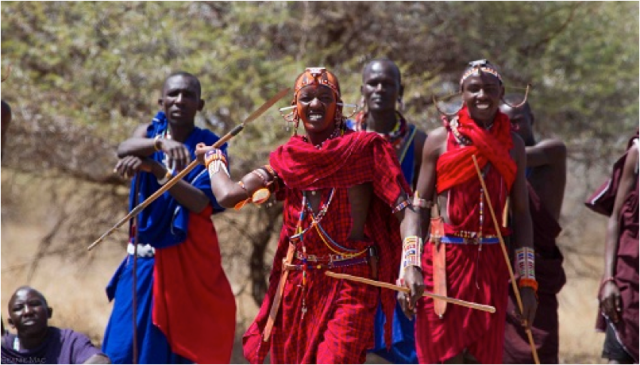
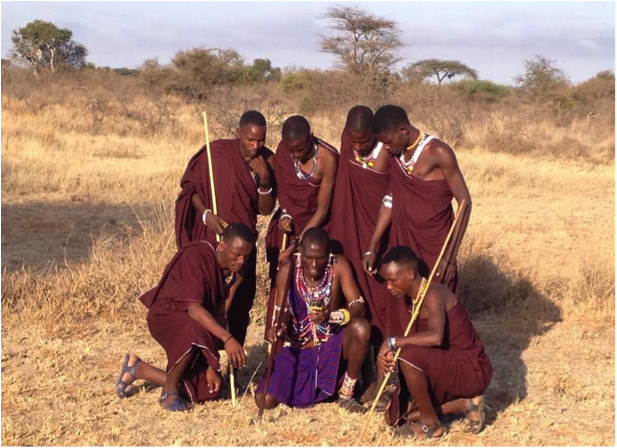
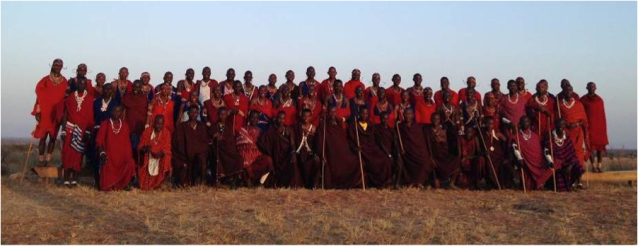
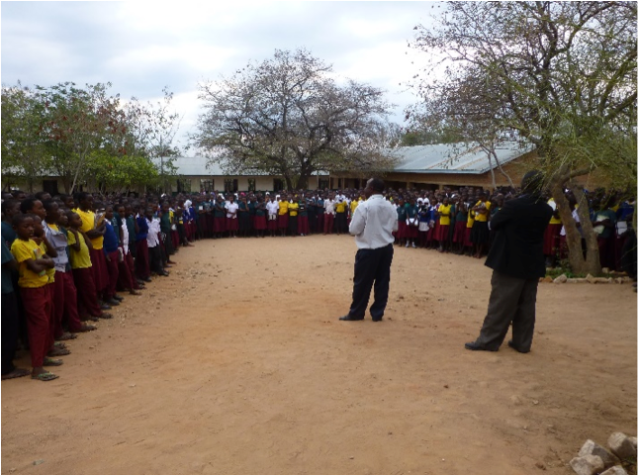
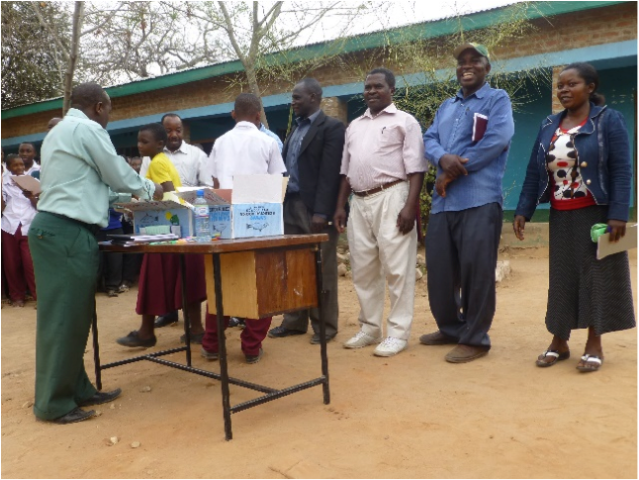
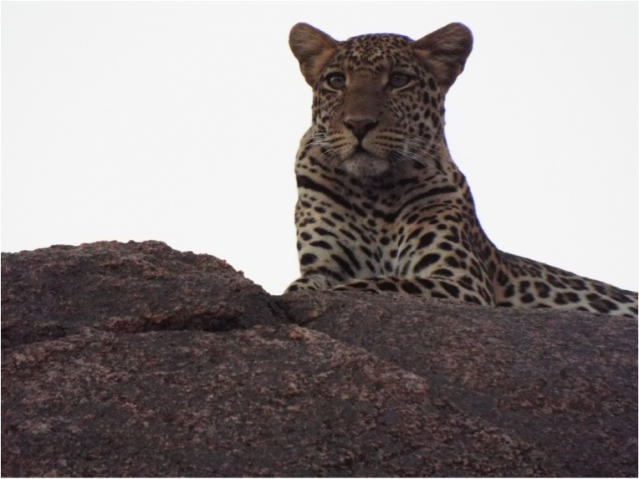
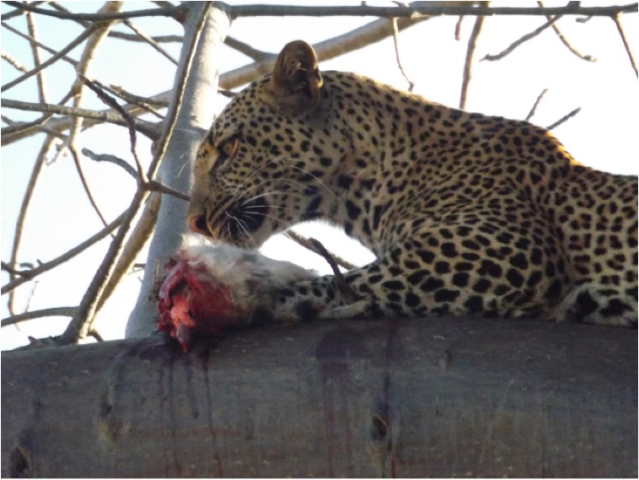
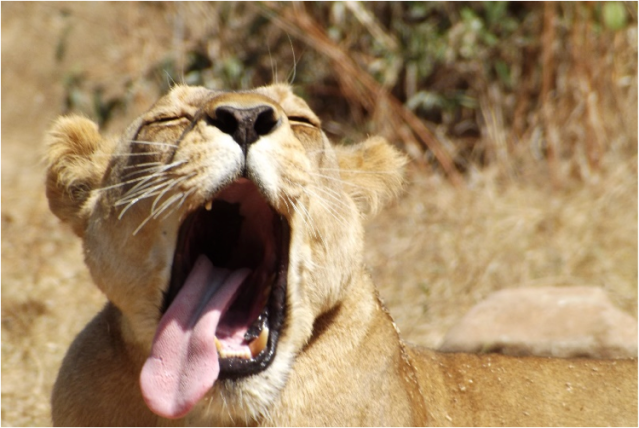
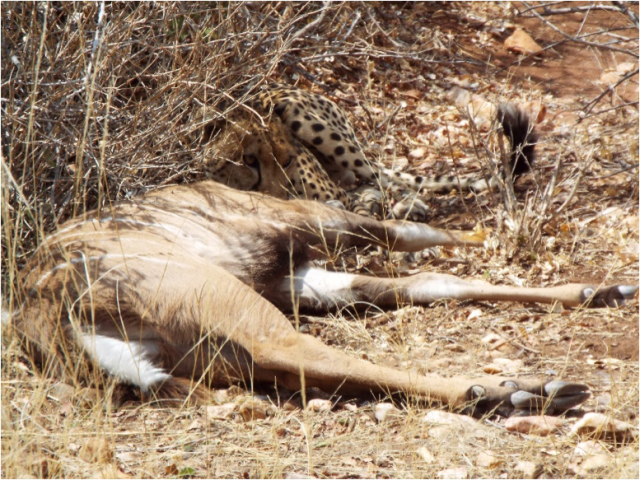
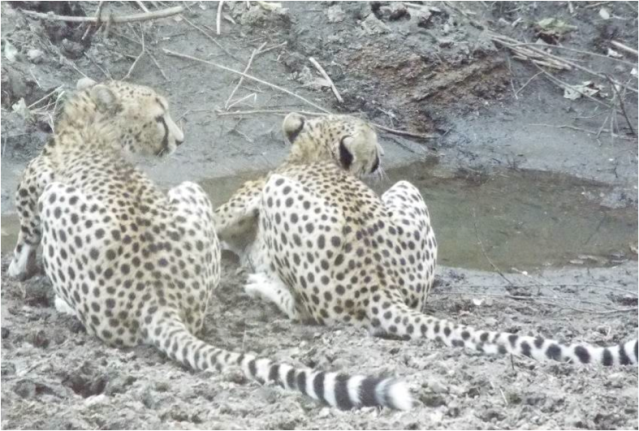
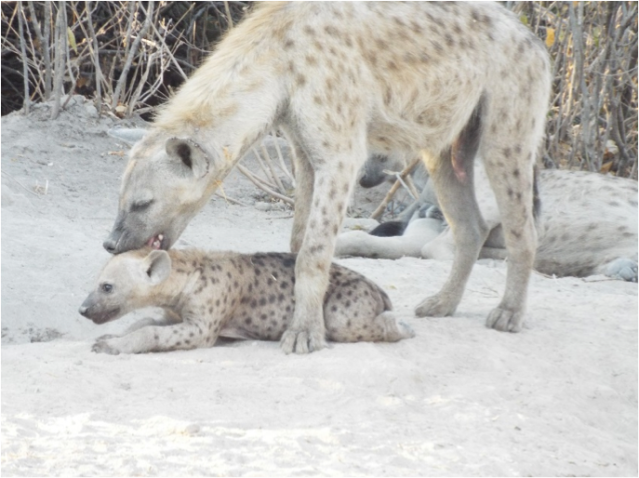
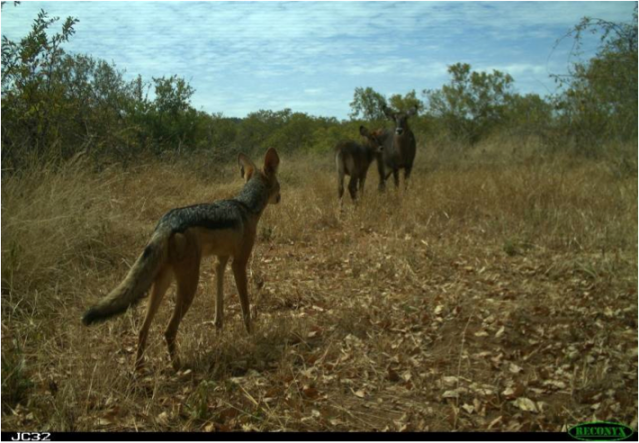
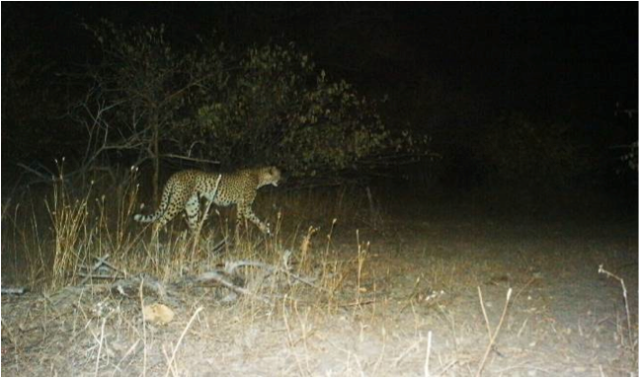
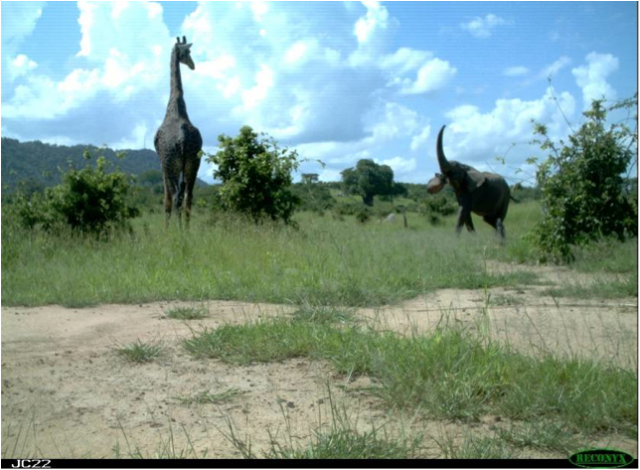
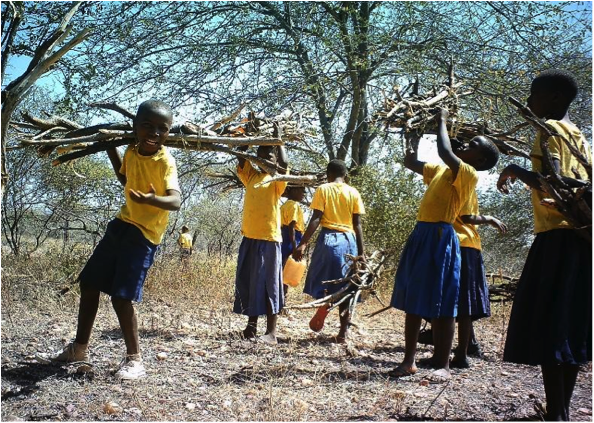
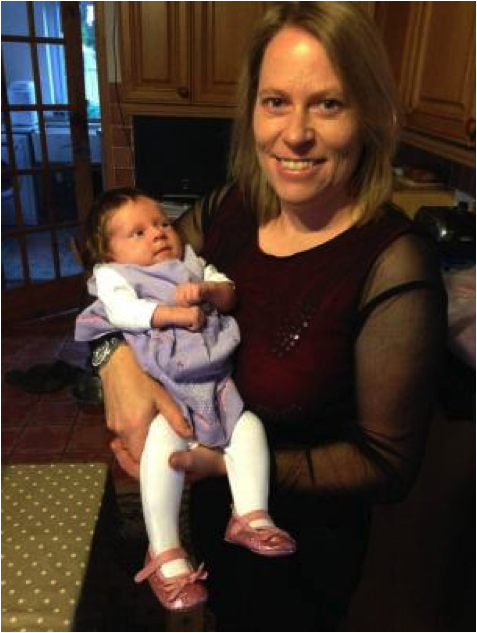




































Add comment
By Amy Dickman, Director, RCP.
Since its establishment in 2010, the Ruaha Carnivore Project has gone from strength to strength (see previous blog “A Friend Of The Enemy”). Here we share the latest update from the field, complete with tales of competition and camaraderie, knowledge and education, the expanding use of camera-trap technology, and finally, a new addition to the family!
Ruaha Guardians compete in the Lion Guardian Games
A day of camaraderie, competition and celebration was had at the 5th annual Lion Guardian Games, which was held in Kenya’s Selenkay Conservancy, on the slopes of Mount Kilimanjaro. The day is organised by the main Lion Guardians organisation in Kenya, and the Ruaha Guardians travelled up to take part, which was very exciting for everyone involved. Upon arrival, after a long journey, the Ruaha Guardians were treated to a very warm welcome, good food and the opportunity to catch up with old friends.
Day one saw the start of competition. First was a whistling competition, where the warriors produce sounds you would expect to hear in the dawn chorus. This was interesting as the Kenyan Guardians are all from the Maasai tribe, while the Ruaha Guardians are all from the Barabaig tribe, and they use quite different whistling sounds as part of their traditional ceremonies. The songs produced startle you at first not only because of their haunting and beautiful nature, but also because they rival even the most accomplished savannah bird – in fact, when RCP staff first heard the Barabaig whistling in the bush, they were convinced it was a real and rare birdcall! Ruaha Guardian Mandela got second place in this event, getting the Ruaha team off to a good start.
Ruaha Guardian Daream storms home to win the 100m final (c) Sean McEnery
Day two started out with sprinting (a real challenge in the blazing heat!), with mixed Maasai-Barabaig teams. There was a 400m relay followed by a 100m sprint, which was won by Ruaha Guardian Daream, in a photo finish with Kissamir from Kenya. Third was a test of strength and spear-throwing technique, where a strong, straight stick made from the White-leaved Grewia tree is thrown as far as possible. Pascal from Ruaha comfortably won this, literally leaving his closest competitors in the dust. Finally the eagerly awaited spear throwing competition was held to finish off the day. In this event a spear is thrown at a target hanging in a tree. The accuracy of all competitors was astonishing, with many hitting the small, wildly swinging target multiple times. Kiro from Ruaha made it to the final, but narrowly lost to one of the Kenyan Guardians, who proved extremely skilled at hitting the target.
The Maasai sometimes call the Barabaig ‘Mangat’i’, which means ‘enemy’ – but there is no sign of rivalry here, as the Maasai Guardians embrace Daream after his win (c) Sean McEnery
Overall, the competition was a huge success – the Ruaha Guardians won two events, contributed strongly towards a win in the mixed relay, and were finalists in the remaining two events. Most importantly, it was a great chance for the Ruaha Guardians to represent their region and to feel proud of their status within the wider Lion Guardian initiative.
Ruaha Guardian Daudi’s spear about to strike the target (c) Sean McEnery
The spears used by the Maasai warriors in Amboseli (shown above) are much heavier than the light spears used by the Barabaig – shown being tried by one of the Maasai warriors below
The third and final day of the trip involved a training day, where all the Guardians had the opportunity to attend various tutorials where their skills were fine-tuned. George, the Ruaha Lion Guardians Liaison Officer, taught one of the tutorials designed to eliminate problems with filling out data forms. During this tutorial, George again demonstrated his importance to the Lion Guardian team and his talent as a teacher, despite having no formal training in this profession.
Ruaha Guardians Daream, Daudi, Nyota, Kiro, Pascal and Mandela are given some extra training in GPS use (c) Sean McEnery
This was an exciting event, as it brought together all the Guardians from East Africa in one place (c) Sean McEnery
RCP community liaison officer helping improve school attendance
One of the most important aspects of our work is community outreach, and providing benefits to local villagers from large carnivore presence in the area. The villagers all voted on which benefits they would most appreciate, and education was one of the top priorities. Therefore, RCP has provided schoolbooks and equipment to 9 local schools so far, and currently provides full secondary-school scholarships for 11 Simba Scholars. However, there are many challenges in the local school system, and one issue is children leaving school prematurely, often because of family issues. Our Community Liaison Officer, Msago, is a board member for the Idodi Secondary School (where the Simba Scholars are based) so he has been working with the school to try to improve the retention of students. One important aspect is recognising and rewarding those students who are doing well, so Msago was involved in a ceremony at the school to give awards to students who were performing particularly well.
Idodi Secondary school students gathered in the schoolyard
Msago (second from right) lined up beside teachers in a ceremony to reward high-achieving students at Idodi Secondary School
Carnivore sightings work continues and expands
In order to collect data on carnivore ecology around Ruaha, RCP partners with Park guides and drivers and asks them to record photos and data for any large carnivore sightings. This has provided invaluable information, and has led to the development of the first presence maps for lions, leopards and spotted hyenas for the Ruaha landscape, as presented in a recent publication by Leandro Abade. We are continuing to collect data so that we can improve those existing maps and also develop them for cheetahs and African wild dogs, which tend to be more elusive in the central tourist area of the Park. Therefore, we are developing partnerships with lodges further to the north and east of the Park to try to expand the area where information is collected, and are also providing tablet devices to guides so that they can accurately and rapidly collect the data needed. North Carolina Zoo, St Louis Zoo and Cleveland Metroparks Zoo have all been key players in getting the new devices to the field, and we are very grateful for their support.
In addition to its scientific value, the sightings programme provides wonderful images of Ruaha’s carnivores, and helps to remind us all why we do the work we do! Below, we highlight some of the best recent images taken by the drivers we are partnering with.
A beautiful image of a leopard resting on a rock (taken by Dotto of Ruaha River Lodge)
The photos also provide insights into diet and ecology – for instance, this leopard is feeding on a rock hyrax (taken by Vincent of Mwagusi Safari Camp)
Images of lions help us to build up identification data: for example, this lioness is missing her upper left canine, which is useful for future ID (taken by Gadmel of Jongomero Camp)
Cheetahs are seen relatively rarely, and their excellent camouflage is demonstrated here, as one feeds on a kudu kill (taken by Majuto of Ruaha River Lodge)
Two cheetahs quench their thirst at a small waterhole in Ruaha National Park (taken by Theophil from Jongomero Camp)
Proof that you CAN have a cute spotted hyena photo (taken by Maulid of Mdonya Old River Camp)
Camera-trapping set to expand further with new student and AWF partnership
Another extremely important form of data collection for the project is camera-trapping – these remotely-triggered cameras are invaluable for recording wildlife presence in areas where they are particularly elusive and hard to see, such as on village land. RCP has been setting up camera-trap grids in partnership with Jeremy Cusack and Trevor Jones, but the majority of these cameras have so far been placed within the Park. This provides extremely important data on mammal distribution and dynamics (as well as great images!), as shown below by some of Jeremy’s recent photos.
A black-backed jackal looking inquisitively at a pair of waterbuck
A rare sighting of a cheetah, camera-trapped on village land
A giraffe, staring at the behaviour of an approaching elephant
Some local children playing up for the camera-trap as they collect firewood
A new addition to the RCP family!
Things have been particularly busy over the past month for our Director, Amy Dickman, as she gave birth to her first baby on 3rd August. The baby is known as Millie, but her full name is Millicent Kitisi Adames, with the middle name given in honour of the local village where RCP is based. Amy is still as committed to the project as ever, and everything is continuing as normal, so we are all very excited about this development, and are looking forward to Millie seeing the village she was named after!
Both the project and Millie’s arrival attracted publicity in the UK’s ‘Mother and Baby’ magazine, featuring mothers who live unusual lives during pregnancy – as Amy was out in the field until 8 months pregnant, that seemed to qualify! Millie will be accompanying Amy on her fund-raising trip to the US in October, so she is learning about the conservation business early on!
Amy and Millie at 4 weeks old, with her dancing shoes on!